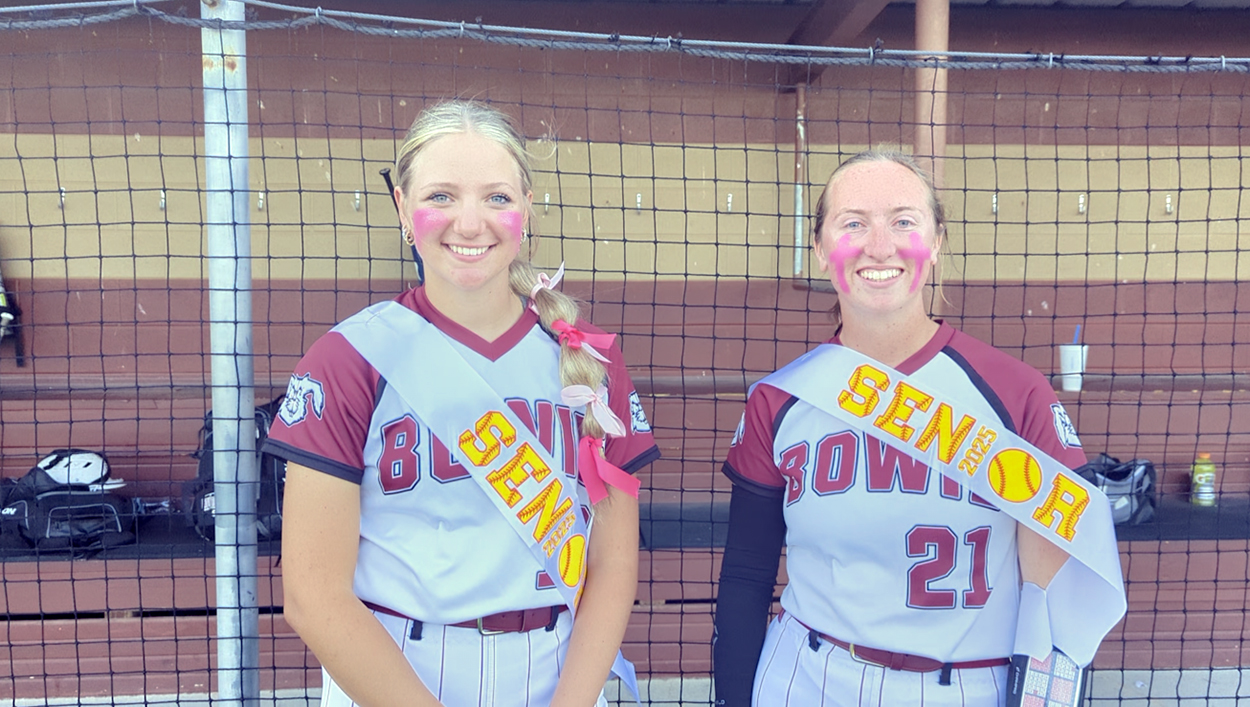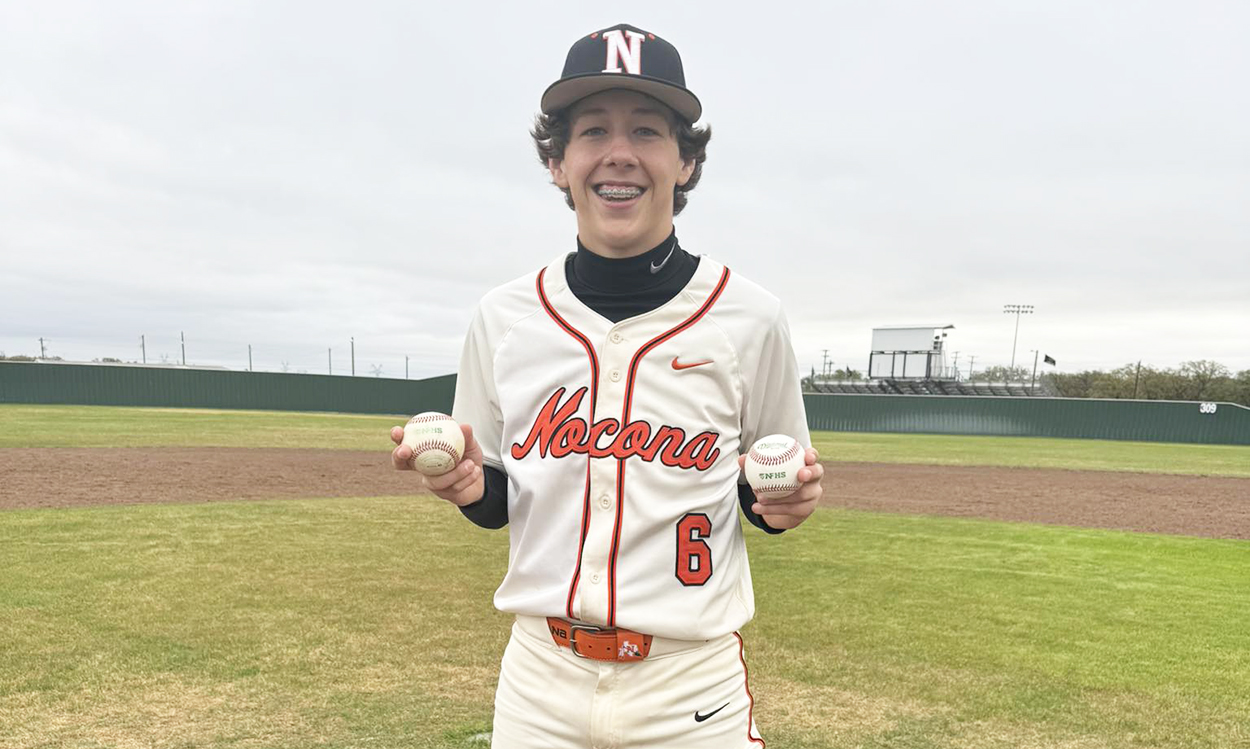SPORTS
National Invasive Species Awareness Month Feb. 20-26, combat harmful plants, wildlife

AUSTIN – The Texas Parks and Wildlife Department (TPWD) asks Texans to join the fight against invasive species that negatively impact the state’s natural resources and economy. National Invasive Species Awareness Week (NISAW), slated for Feb. 20–26, is an initiative to raise awareness of the threats and provide solutions on how to prevent the spread of invasive species.
“During National Invasive Species Awareness Week, and throughout the year, we want to encourage all Texans to take time to prevent new introductions and spread of invasive species and help to protect our natural resources for the enjoyment of future generations,” said Monica McGarrity, TPWD Senior Scientist for Aquatic Invasive Species.
Invasive species are non-native to an ecosystem and can cause environmental or economic damage and harm to human health and quality of life. In addition, invasive species are expensive to control and can be impossible to eradicate once established, and can inflict costly damage to crops, fisheries, forests and more. According to recent estimates, these costs total approximately $219 billion across the United States every year. Many invasive species are spread (inadvertently or intentionally) by humans, who play an important role in preventing their spread to new areas.
A variety of non-native plants, animals, insects and even diseases can become invasive when they enter a new environment, growing or reproducing rapidly and potentially outcompeting native species. This allows them to become established and problematic across large areas. They can be introduced by humans in a variety of ways, including intentional introduction through aquarium dumping, live bait releases or outdoor plantings, or accidentally as “hitchhikers” carried through recreational activities.
These risky recreational activities can include hauling firewood long distances for a campfire or moving a boat from one reservoir to another without properly cleaning, draining and drying it first. Once introduced, some species can harm native species and ecosystems, impact recreational activities, damage infrastructure and require costly, long-term management in cases where control is possible.
This year for NISAW, TPWD offers five easy actions anyone can take to help prevent or slow the spread of invasive species in Texas.
Never Dump Your Tank
Don’t dump anything — whether it’s fish, animals or plants — out of an aquarium into any of Texas’ waterbodies. The same is true for flushing them down the toilet. Whether saltwater or freshwater, there’s a good chance your aquarium fish, animals and plants are not native to Texas. If dumped into the wild, they can quickly introduce diseases and establish themselves at the expense of native aquatic life, vegetation and reef systems. Learn more on the Texas Invasives website.
Similarly, you should never release any animal that you have purchased as a pet into the wild. Most likely your pet is not native to Texas and could cause serious harm to our native species and ecosystems. Find more resources on the Don’t Let It Loose website.
Use Your Bait Where You Catch It / Never Dump Your Bait
Many people don’t realize the potential impact that releasing live bait can have on aquatic life. Bait bucket introductions — anglers dumping live bait into a water body other than the one where it was caught — are one of the most common ways we spread aquatic invasives.
Just remember this: Don’t dump leftover bait in the water at the end of a fishing trip and don’t take live-caught bait (or any bait that’s touched lake water) to another lake to use. Alternatives include taking your bait home to use on a future fishing trip at that same lake, offering it to another angler to use or placing it in the trash.
For more information, check out this TPWD magazine article.
Plant Native
When landscaping near your home or planting a garden, it’s important that you choose plants that are native to your region. Non-native plants can escape cultivation and become invasive and have an impact on water quality, biodiversity, fish and wildlife habitats and more. Learn about great native plants to plant in your garden and find native plant suppliers on the Lady Bird Johnson Wildflower Center website.
Don’t Carry Hitchhikers
You could be carrying invasive species with you when you’re enjoying outdoor recreation and not even know it. Insects and plants, including plant seeds, can hitch a ride on your clothes, shoes, gear or even your firewood. You can help stop the spread by removing plants, animals and mud from clothes, boots, gear, pets and vehicles, cleaning your gear before entering and leaving recreation sites, using only local firewood and simply staying on designated roads and trails. Learn more on the Play, Clean, Go website.
Clean, Drain and Dry Your Boat and Gear
Boaters can help keep zebra mussels, giant salvinia and other invasive species from being moved and harming more lakes. We ask all boaters to take a few minutes to properly clean, drain and dry their boats and equipment before they leave a lake every time they go boating. Remove plants, mud and debris from the boat and trailer and drain all the water from the boat and gear. Once you get home, open up compartments and allow everything to dry completely.
For more information on how to properly clean, drain and dry boats and equipment, visit the TPWD YouTube channel for a short instructional video. If you have stored your boat on the water at a lake with zebra mussels, it is likely infested and at high risk for spreading this invasive species. Before moving it to another lake, call TPWD at (512) 389-4848 for guidance on decontamination.
Learn more about aquatic invasive species on the Stop Invasives page of the TPWD website.
TPWD also encourages the public to use the Texas Invaders app or website to report sightings of invasive species, whether in your backyard or in wild spaces. Citizens can learn how to identify invasive species on the Texas Invasives website.
SPORTS
Bowie Baseball Interview

SPORTS
Bowie Softball Interview

SPORTS
Baseball Roundup

Nocona
The Nocona Indians picked up dominant wins against Chico in their series against the Dragons last week.
The Indians won both games 11-0 by run-rule after five innings to get their first district wins of the season.
Nocona was coming off losing both games against Lindsay the previous week in its first district series and bounced back in a big way.
In the first game at home last week, the Indians scored six runs in the first inning and five in the third inning which proved to be all the offense they needed.
Kutter Cabrera led the team with three RBIs while Miller Jentry was second with two RBIs. The team finished with nine hits and drew eight walks.
On the mound, Walker Murphey pitched a shut out while striking out seven and allowing three hits. Defensively, the team committed one fielding error.
The second game saw Nocona score all of its runs in the first three innings, highlighted by scoring six runs in the second inning.
Murphey hit a three-run home run to lead the team while Brody Langford and Landon Fatheree each had two RBIs.
On the mound RJ Walker had a big day, throwing a perfect four innings which means he did not allow a hit or walk anyone. He also struck out eight batters, which put him over 100 career strikeouts in high school. The defense committed no fielding errors.
Saint Jo
The Saint Jo Panthers lost their series against Bryson last week.
The first game was a close 3-0 loss, but the second game was 11-0, done after four and half innings due to run-rule.
The Panthers were coming off close losses to Perrin-Whitt from the previous week. They were hoping they could turn their fortune around playing another 1A program.
Unfortunately in the first game, the Cowboys got off to a good start, scoring three runs in the first inning, with two coming with two outs due to an error and a dropped third strike.
Saint Jo’s pitching and defense tightened up after that to not allow another run in the final six innings. Unfortunately, the Panthers had only two hits and four base runners all game as they lost the close game 3-0.
Charlie Evans and Rylan Forrest had the only two hits for Saint Jo in the game as the team struck out 18 times. Trent Gaston ended the game allowing three runs (one earned) on six hits while striking out five batters and walking two in six innings of work. The defense committed five fielding errors.
Unfortunately, things did not go as well several days later in game two. Bryson scored three runs in both the first and second innings before scoring five runs in the third inning. Saint Jo was not able to get a hit and drew two walks in the game.
The Panther defense committed six fielding errors which led to only three of the 11 runs given up were earned by the pitching staff who gave up five hits, walked six and hit four batters.
Bellevue
The Bellevue Eagles played Perrin-Whitt last week in a series.
The Pirates won the first game 11-1 by run-rule and the second game score was not updated on Game Changer.
The Eagles were coming off one-sided losses to Bryson the previous week in their first district series and was hoping to play better.
Bellevue did get out to an early lead in the first inning. River Trail hit an RBI single in the top of the first inning to go up 1-0, which proved to be the highlight of the game.
Perrin-Whitt scored three runs in the first inning, one in the second inning, two in the fourth inning and five in the fifth inning to win 11-1.
To read the full story, pick up a copy of the weekly edition of the Bowie News.
-

 NEWS2 years ago
NEWS2 years ago2 hurt, 1 jailed after shooting incident north of Nocona
-

 NEWS1 year ago
NEWS1 year agoSuspect indicted, jailed in Tia Hutson murder
-

 NEWS2 years ago
NEWS2 years agoSO investigating possible murder/suicide
-

 NEWS2 years ago
NEWS2 years agoWreck takes the life of BHS teen, 16
-

 NEWS2 years ago
NEWS2 years agoMurder unsolved – 1 year later Tia Hutson’s family angry, frustrated with no arrest
-

 NEWS2 years ago
NEWS2 years agoSheriff’s office called out to infant’s death
-

 NEWS2 years ago
NEWS2 years agoBowie Police face three-hour standoff after possible domestic fight
-

 NEWS2 years ago
NEWS2 years agoDriver stopped by a man running into the street, robbed at knifepoint







